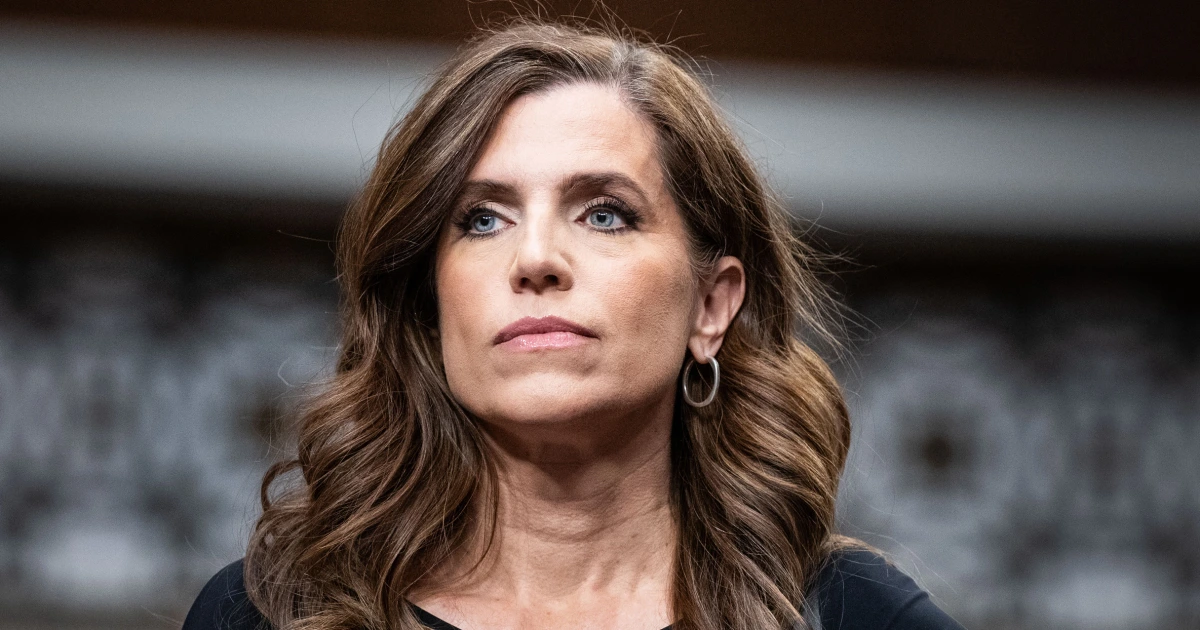Representative Nancy Mace (R-S.C.) is at the center of a political firestorm after introducing a resolution to restrict transgender individuals from using bathrooms aligned with their gender identity within the U.S. Capitol. Mace’s proposal has drawn sharp criticism from Democratic lawmakers, particularly Representative Alexandria Ocasio-Cortez (D-N.Y.), and has reignited a broader national debate over transgender rights and privacy.
The controversy began on November 18, 2024, when Mace proposed the measure, which would limit bathroom access based on biological sex in Capitol facilities. The resolution comes as Congress prepares to welcome Sarah McBride, the first openly transgender person elected to the House of Representatives. Mace defended the timing and intent of her proposal, describing it as a necessary step to ensure the safety and privacy of women in the Capitol complex.
Critics, including Ocasio-Cortez, have accused Mace of promoting discriminatory policies that undermine the rights and dignity of transgender individuals. Ocasio-Cortez took to social media to express her concerns, arguing that the resolution would do more harm than good. She suggested that such measures not only stigmatize transgender individuals but also fail to address the real concerns of safety and inclusivity in public spaces. Ocasio-Cortez also emphasized the importance of recognizing transgender individuals as equal members of society, including in legislative spaces like the Capitol.
Mace, however, remained steadfast in her position, dismissing the criticism as politically motivated and hypocritical. Speaking to Fox News, Mace argued that her resolution is rooted in common-sense principles and is aimed at protecting women’s spaces. “It’s the height of hypocrisy for those who claim to support women’s rights to now advocate for policies that compromise the safety and privacy of women,” Mace said. She framed the issue as one of fairness and security, asserting that her proposal is about maintaining clear boundaries in shared facilities.
The debate has brought into sharp focus the complexities surrounding transgender rights in the United States. Advocates for transgender equality argue that restrictions like the one proposed by Mace are harmful and perpetuate discrimination. They contend that transgender individuals face significant barriers and risks, including violence and exclusion, when denied access to bathrooms that align with their gender identity. Conversely, supporters of Mace’s resolution argue that the proposal is not about discrimination but rather about protecting women and ensuring privacy in gender-specific spaces.
This is not the first time that transgender bathroom access has become a contentious issue in U.S. politics. Similar debates have played out in state legislatures and local governments, often dividing communities along ideological lines. Mace’s resolution has added a new layer to the discussion, as it addresses facilities within one of the nation’s most prominent government buildings, the U.S. Capitol.
The resolution has also sparked broader conversations about how Congress will navigate representation and rights as the legislative body becomes more diverse. McBride’s election has been hailed as a milestone for transgender visibility and advocacy, but it has also highlighted the challenges faced by transgender lawmakers and individuals in the political arena.
As the new Congress convenes, the future of Mace’s resolution remains uncertain. With Democrats expected to oppose the measure and even some Republicans likely to express reservations, its passage is far from guaranteed. Nevertheless, the proposal underscores the deep divisions in American politics regarding issues of gender identity, privacy, and safety.
This debate also reflects a broader cultural shift as institutions grapple with the evolving understanding of gender and the rights of transgender individuals. Whether Mace’s resolution succeeds or fails, it is clear that the conversation about how to balance privacy, safety, and equality in public spaces is far from over. The Capitol, as a symbol of American democracy, has now become a microcosm of the national debate, with lawmakers on both sides of the aisle tasked with finding solutions that respect the rights and concerns of all individuals.
Sources:

